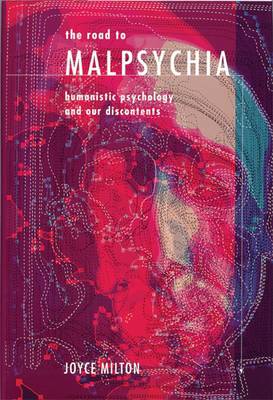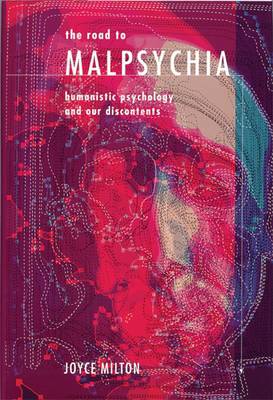
En raison d'une grêve chez bpost, votre commande pourrait être retardée. Vous avez besoin d’un livre rapidement ? Nos magasins vous accueillent à bras ouverts !
- Retrait gratuit dans votre magasin Club
- 7.000.000 titres dans notre catalogue
- Payer en toute sécurité
- Toujours un magasin près de chez vous
En raison de la grêve chez bpost, votre commande pourrait être retardée. Vous avez besoin d’un livre rapidement ? Nos magasins vous accueillent à bras ouverts !
- Retrait gratuit dans votre magasin Club
- 7.000.0000 titres dans notre catalogue
- Payer en toute sécurité
- Toujours un magasin près de chez vous
The Road to Malpsychia
Humanistic Psychology and Our Discontents
Joyce Milton
Livre broché | Anglais
24,95 €
+ 49 points
Description
Joyce Milton's fascinating narrative begins in the early 1960s with psychologist Abraham Maslow's prediction that psychologists would soon seize control of values from religion and be able to create an ideal society made up of self-actualized men and women. Maslow became the prophet of the new humanistic psychology movement. Its leading practitioner was Carl Rogers, the California human potential guru who used encounter groups to teach people to get in touch with the dark impulses of their true selves. And the marketer-in-chief was Harvard's Timothy Leary, who saw LSD as a tool for helping in the task of deconstructing the Judeo-Calvinist worldview. The Road to Malpsychia gives us intriguing portraits of these patriarchs of the new secular order. Milton also shows what happened when Maslow disciples Abbie Hoffman and Betty Friedan applied Maslow's teachings to political activism and feminism, and when educators too eagerly adopted the principle that children must develop intrinsic knowledge, free from authoritarian influences and the tyranny of facts. Impatient with human limitations, anxious to put the self at the center of the universe, the humanistic movement was momentarily triumphant. But instead of becoming, in Maslow's phrase, fully human, the questing selves built a culture of narcissism; the new values were revealed as clichés in disguise; and the new gospel of self-esteem devolved into psychobabble. The Road to Malpsychia charts the rise and fall of one of the most significant cultural movements of our time. It is a story filled with character and anecdote and also with daunting implications for the secular souls left stranded by the failure of what Maslow once called the religion of human nature.
Spécifications
Parties prenantes
- Auteur(s) :
- Editeur:
Contenu
- Nombre de pages :
- 326
- Langue:
- Anglais
Caractéristiques
- EAN:
- 9781893554795
- Date de parution :
- 01-10-03
- Format:
- Livre broché
- Format numérique:
- Trade paperback (VS)
- Dimensions :
- 153 mm x 228 mm
- Poids :
- 489 g

Les avis
Nous publions uniquement les avis qui respectent les conditions requises. Consultez nos conditions pour les avis.






